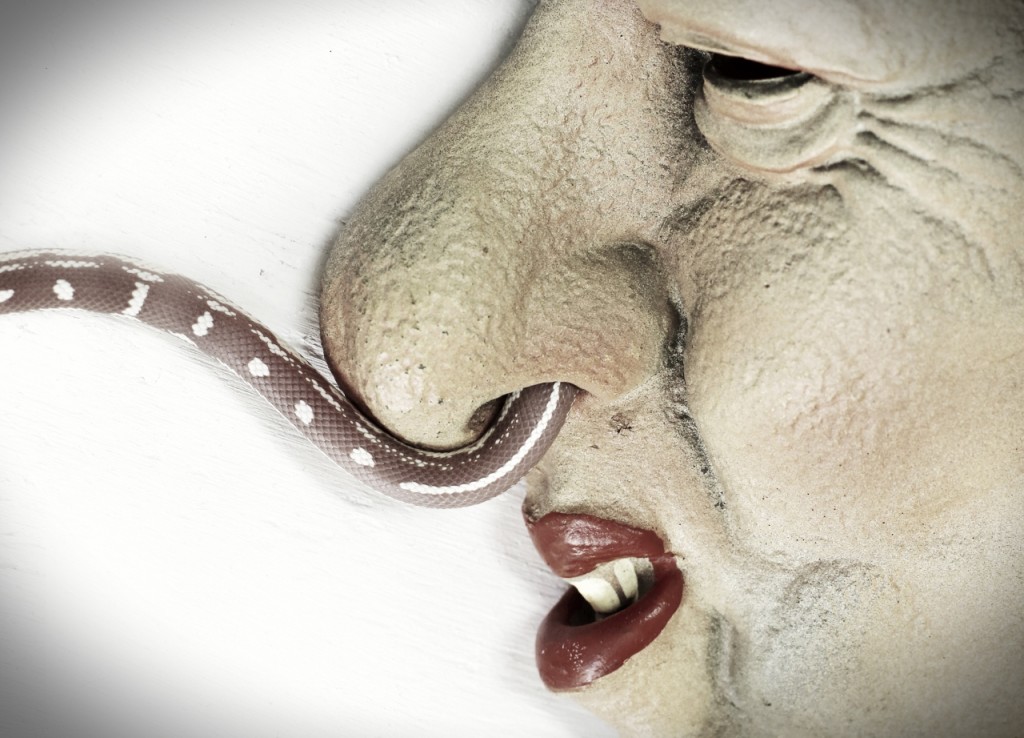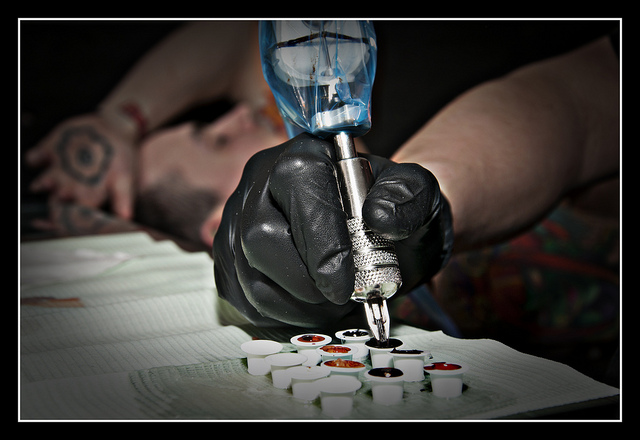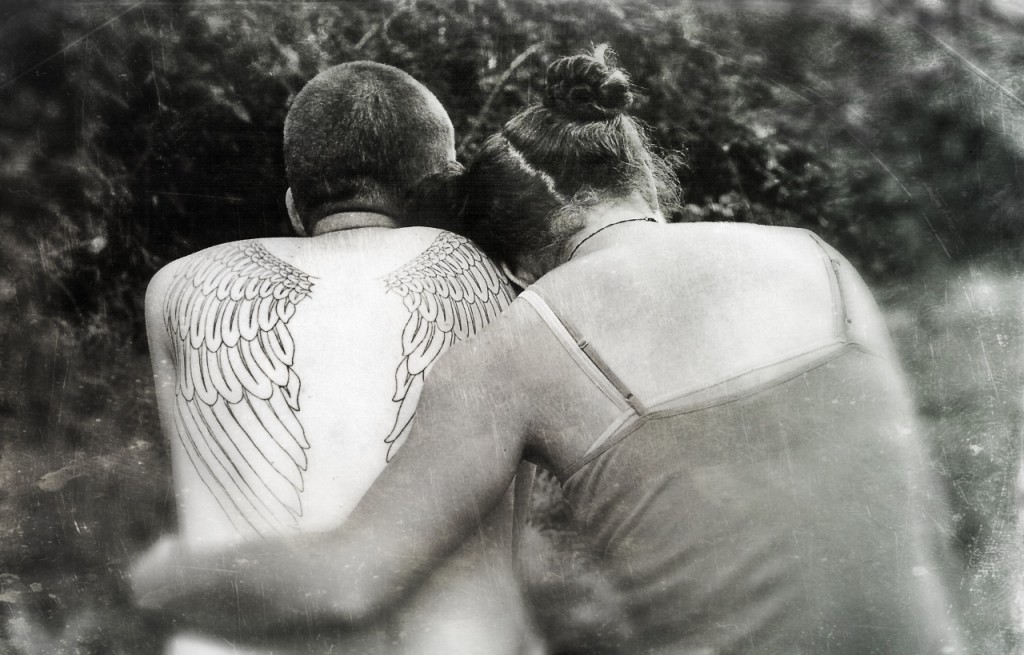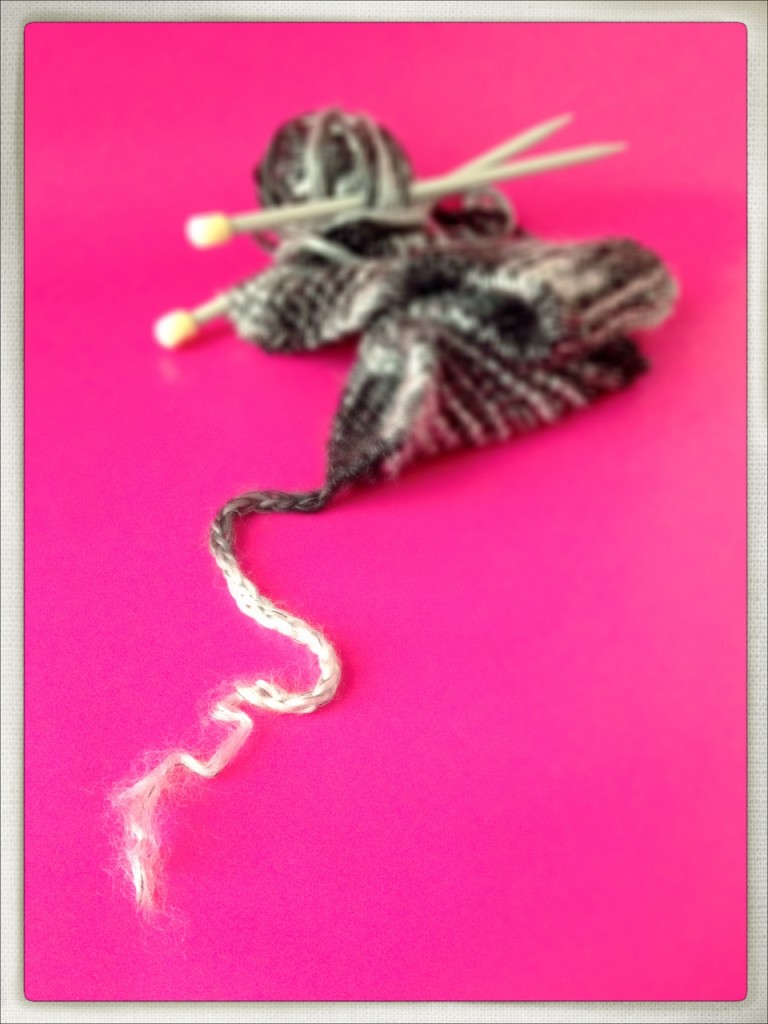
By Eaton Hamilton
She’d left so many bruises that I needed long sleeves in August, and I finally told her, quietly, firmly, that I couldn’t stand covering up through the heat wave any longer.
“But the windows open now,” she said, annoyed since I’d just hired people to reconstruct the living room sash and pulls.
I’d learned how to phrase things so that I wasn’t talking about what I was really talking about. “Which is really only helpful…” I said, pushing slick strands from my forehead in the thick-aired room, “if there’s a breeze. What I really need is to be able to wear summer clothes.”
•••
She never felt remorse after the intimidation, after the bruises.
Only once, after she scared me seriously with back-to-back rages, a raised fist, and trying to yank me out of my escape car, did she apologize, but even that regret vaporized in twelve hours.
•••
One time she screamed in the middle of a rage, “Tell me who I am!” and her voice went wobbly at the word “am” while she grabbed her hair and shook it.
I don’t know, I wanted to say. Nobody I’d like to meet in a dark alley.
•••
Within three weeks of our knowing each other, she had her first meltdown. That’s the name she already had for these things, her meltdowns.
Her meltdowns.
My wife as a nuclear power plant. My wife as reactor #1 with complete core deliquescence. My wife as a fuel rod with explosive concentration limits.
Red-faced rage is what it was.
I’d risen from bed an hour after she started snoring because I couldn’t sleep and I couldn’t stand my insomnia one minute longer. I watched TV in the living room until I nodded off.
I woke to her screaming inches away from my face, spittle rain. “Why are you out of bed you know I can’t sleep if you’re gone you know I need you in bed beside me you’re so fucking selfish you know I can’t be alone!”
I was—I don’t remember what I was. Shocked. Dazed with sleep. Confused. Certainly scared.
“I have to get up unlike some of us I have an important job do you want me to kill someone when I’m overtired because you kept me up?”
If I didn’t sleep beside her, properly, someone could die.
•••
When she was good
She was very very good
And when she was bad
She was horrid
•••
Rinse and repeat. Add suicide threat and shake well.
•••
There at the beginning, she was regularly grumpy and snarky and mean like a child decompensating after a school day.
Eggshells. Crunch, crunch, under mine and the kids’ bare feet, sharp shards of white across our lives like carpet.
But then she got diagnosed and put on a “mood regulator.” It worked like flipping a switch—now we got the other side of her, the woman I had fallen so madly in love with. Her good side was a drug to me; I did anything I could think of to court it.
She was funny and quick, and she thought I was hilarious. I lived for her peals of ready laughter. She was dependable, sweet, and attentive. We read fiction together. We could discuss politics, social justice, feminism. She was plot doctor for my novels. I counted on her intelligence. We made a family together. We bought a house. We adopted a cause, and together with other folks, we sued the government and changed our country’s constitution. We grew a garden. We went to Africa, to Greece, to Paris, to Fiji, to Thailand, to Cuba. To art museums, to dinners, to dance and symphony. We slid down sand dunes in Oregon and Fiji and Namibia; renewed vows on elephant back, at the top of the Empire state building, in a hot air balloon, in a Thai tuk-tuk. When she was happy to see me—which was always until she met someone who’d had a vituperative divorce and she became, herself, imitatively scurrilous—she’d turn around and wave her butt as if it was a thumping tail.
•••
But this was how we still talked about her violence after nearly two decades: politely, with obfuscation. We did not need to refer to where I got the bruises, since both of us knew that, or what she had done to cause them—the two or three times a week, she held me by force and I would repeat, my voice half dead from weariness and repetition, Stop. Let me go. You’re hurting me. Trying to wrench away, I knew, would make things worse. As the bruises bloomed like black roses, five to each stem, she pretended that I had a blood disorder, and once, once, when there were so many, she directed me to have the test to prove this. I did that, and it came back negative.
“You were trying to drag me out of the car that day,” I said.
“That was just one occasion.”
“We fought again and you grabbed me,” I said.
“The things you do. The things you do provoke me. I’m not putting the blame on you. I’m just saying be careful of what you do, be careful of what you do and how you do it.”
•••
I didn’t blame her, so forgiveness wasn’t needed. She was an important woman saddled with employment burdens, and for her, different rules, I thought, applied. She thought so, too; whatever rule applied to the rest of us was not applicable to her because she was smarter, more educated, held aloft by the reverence her job provided her.
I gave her every benefit of doubt: She didn’t mean to hurt me. It wasn’t the real her who did those things. The real her was the good her.
•••
This is what I did with her violence when I was alone: I added it up—made charts—to see how much of it there was, relative to homework and cooking and sleeping and doing laundry and watching TV and celebrating occasions and ferrying kids and gardening and dancing—and stuff, you know—and it was less than one percent. 90% of the time, we were glowing: engaged, productive, tickled with each other; 9% of the time, we were like any long-term couple, a little inert, unexcited with each other; and only one percent of the time did things go topsy.
I shredded the charts afterwards so she wouldn’t find them.
After she made me leave her, my therapist said, “Would you tell me a car with bad brakes was basically a good car?”
I looked at her.
“If you were on the top of a hill, those bad brakes would be a pretty important flaw, wouldn’t they?”
“We could have moved to Kansas,” I said. “It’s flat in Kansas.”
She cocked her head. “I hate to let you in on this, Dorothy, but nobody lives in your Kansas. Toto doesn’t live in your Kansas. Your Kansas doesn’t even exist.”
•••
Her father went after me, after us, about six months after his wife died, after I started calling him Dad, even though all the other wives called him Dad.
There was no welcoming nomenclature for me, the lesbian. When I tried out my wavery “Dad,” he soon said I (and by extension, his daughter) had killed his wife with my “gay stuff.” I had disrespected his wife. I exploited his daughter. My house stunk and I smelled, too. “Gaijins know they stink,” he said.
This is the problem with never learning even rudimentary communication skills. Things percolate to the surface in destructive tsunamis. After his blow-up, the man refused to see us, his daughter and daughter-in-law, his two granddaughters, his great-granddaughter, for seven years, unless I would stay home.
From father to daughter, the inheritance of bullying.
•••
My relationship was continually under threat from my wife’s disrespectful peregrinations towards break-up, and since she never talked about these, I just sensed them, or wrangled with each lie on its own terms, and did whatever I could, anything I could, to protect us as a couple—silly things like putting white light around her, and her car, around our whole house of cards.
•••
Define domestic violence. Big dudes spring to mind, furious and fisted, their abuse flagrant, flamboyant, fervid. But butch though my wife was, she was not hefty, nor quintessentially angry of spirit, and if I asked you to pick out the likelier batterer in our relationship, ten out of ten people who didn’t know better, I’m guessing, would pick me, because I am raunchy of mouth, untactful, and larger, and just, you know, not “nicey,” whereas she is small, polite, warm, and obsequious.
They’re quite lovely, most batterers.
Lovely at home, too.
Until they’re not.
Size, of course, has absolutely nothing to do with being battered. And neither does gender.
All that you really need for battering is one person willing to batter.
The thing about batterers is that you can see what they’re not doing to you just as much as what’s transpiring. Yes, they are pinning you, but you can also see their gaze sliding sideways and fixing on the knife rack, considering. Yes, they are pulverizing the sofa, but you know by what they’re saying that they wish it was your face. Or they throw a bunch of stuff and then come rushing at you, fist raised, even though at the very last minute, they drop it.
I never hit you is technically correct.
But they have their ways of letting you know where their violence could go—if they want it to.
And this is always clear: You don’t get to decide.
They get to decide.
•••
At first we had a potted garden, but when we moved into our house, she went at the hard clay with a pickaxe, double digging, and we dumped bales of moss and vermiculite and compost into the soil four feet down. Together, over years, we made a perennial garden with different rooms and arbors and sunken pits and water features and pergolas.
Wisteria, roses, clematis, poppies, lilies, hydrangeas, palm trees.
•••
It didn’t fit with her self-image to be an enraged beast—it shamed her, so she “disappeared” it. After flagrant episodes, she’d threaten to kill herself.
Or else threatening to kill herself just ended the fight without dealing with the matters at hand.
•••
After I left her, she admitted that she had no sense of self, and said she had a personality disorder (she declined to say which). She said that she had never—ever, not once—told the truth to anyone. “I just tell them what I think they want to hear,” she said, “and nobody has a clue.”
“What?” I said, “what?” I had lived with her for almost two decades. Wouldn’t I have known this?
“Even you,” she said. “I lied to you from the day I met you. Every word out of my mouth? Lies. Every word.”
•••
I was disabled, and she became my legs; over the years, as I grew sicker, I became more and more dependent on her care-giving and support.
She always ran ahead of our lives to see whether I could handle the terrain—and I believed that she didn’t mind. I thought she was in it for me, and I was in it for her, and we were in it for our family.
But after she broke us, she told me that living with a cripple had been like living a quarter life.
“Not even a half life?” I said, blubbering.
“A quarter life,” she repeated.
•••
We made up new words or we mangled the pronunciation of extant words. Our convos looped and spiraled until we were linguistically charmed.
•••
In 1997, she adopted the kids when our laws changed to allow it. They needed independent counsel to understand what rights they were waiving and what rights they were gaining; someone to make certain we weren’t coercing them. In those early years together, we couldn’t, as a lesbian couple, get married, but the adoption made us family and confirmed that we would always be linked, and confirmed who would inherit if she died.
•••
She had breast cancer, in situ; lumpectomy and radiation recommended. She opted for chemo, and the less-generous-me wondered if it was so other people would see her suffer.
After she healed, she held her illness over me like a sword.
“I’m having trouble swallowing,” she said when wouldn’t eat her dinner and didn’t want me to know that she’d already had dinner with her lover.
•••
She twisted my wrist when she held my hand—not once, not a dozen times, but hundreds of times. I talked to her about it often, saying how much it upset me, and also how it wrecked my hands, wrist, and elbow, gave me carpal tunnel and tendonitis etc., and for a few minutes after I said something, she’d stop squeezing, stop twisting, and we’d be just sweethearts, walking, like all the other queer sweethearts strolling around Trout Lake, madly in love, until she started again, bearing down hard, wrenching it left.
My interior monologue ran like this:
She’s happy she loves me she wouldn’t hurt me not on purpose it can’t be voluntary it must be because she’s learning to lead in dance and she’s working on developing a “frame.”
As if sense enters into battering. As if logic has the slightest role to play.
•••
In our long-time house, we had a hot tub, my wife and I. We had it installed right outside our back door, half roof-covered, half exposed, so that it was possible to be protected from the elements or not. We used it every day, pretty well, and that was where we decompressed from the stresses of our days—where we met in chit chat and bubbles.
Where I first saw her naked with the other woman.
•••
There was something hinky in how I loved her after her cancer, how besottedly I cared. I took the car in, dealt with laundry, made dental appointments, hemmed her pants, cleaned the windows, bought the paint, changed the sheets, scrubbed the fridge, ferried the kids, ground the coffee, bought the birthday gifts, sent the thank you notes, booked the ferries, hotels and air, picked up the bulbs, arranged delivery of the compost, paid the bills, renewed the mortgage, and she pretty much worked, came home, and did the heavy lifting I was too ill to manage. She looked at me often, sometimes with derision, and said, “Oh my god, you are just so kind.”
But I was absolutely terrified to lose her. My favorite thing was being with her. Doing anything.
•••
Every year, or every two years, she’d decide she didn’t need her meds anymore, giving us a two-day slide into the bad old behavior.
And I’d ask myself: Which of her is real? Happy or harridan? I wanted to believe in the former, because she glowed with health and satisfaction, but a niggling part of me believed that, actually, it was the latter.
If both were, she was deeply bifurcated.
When off her pills, she’d pick fights. She’d pick pick pick pick at my Achilles’ heels. Bland, I’d remind myself, be bland bland bland, but about day four or five, I’d say something a teeny bit snarky back.
Then I became the reason she was mad. Me being a fuckhead became her explanation for everything.
•••
When she told me that she was leaving, she said that she’d wanted to go since thirteen years before, when she’d had cancer. But that wasn’t what she’d acted like at the time: during that hell, she’d stood on the rocks on a Pacific Ocean beach and asked me to marry her, then we’d become litigants in the same-sex marriage case and fought hard, against the government’s fifty lawyers, for three years—to marry each other. When we’d wed, she was as transported as I was. I’d swear it.
•••
We never stopped having sex, not all through the good times or the bad times, not even through the break-up.
•••
“I’m sorry that I scream,” she said. “Mine just comes out as rage and meltdowns. Yours comes out as hurt, hurt, hurt, hurt, hurt, hurt, hurt. Hurt, hurt. It’s not just me. I will take—I know I’m being fucking insane right now. Please. Please.”
•••
It wasn’t until after I left her and was blemish free that I understood that I wouldn’t have bruised at all—with ease or difficulty—if her fingers hadn’t been pressed into my flesh. It wasn’t until after I left her and I no longer had carpal tunnel, tendonitis, ulnar nerve trouble, and bursitis in my arms that I realized that it hadn’t been computer work causing the pain as she’d said.
•••
That last year, I had a bad reaction to my October flu shot, so the top of my arm was three times swollen, red, and griddle hot. No sleeve was large enough, so I was half-shirtless, my top jerry-rigged, part of the neck under my armpit. My wife pulled back her arm as if winding up to throw a baseball, then slammed her palm onto my wound, shaking her hand vigorously.
While smiling. Not a serial-killer-smile like on TV, but a loving smile.
A smile that ultimately told me whatever was going on inside her was in a code that I was never going to break.
•••
When I got more direct, challenging her on the uptick in violence as our marriage had gone to hell, she told me I had abused her, too. I asked how and she said by rolling my eyes, by smirking. And then she said, “By making me dance.”
In the years when I was well enough: jive, night club two-step, west coast swing, waltz, cha-cha, mambo, samba, meringue, rumba, salsa.
•••
That mid-August week in 2011, we negotiated ways to beat the summer heat so she could go on hurting me in her preferred manner. She set up a fan in front of one of the new windows to push the air around, and even though I lived there, in that room, largely, all day long, because I ran my photography studio from it, and I knew that it wouldn’t work, I appreciated it.
I appreciated it.
I was glad I had a considerate wife.
This is true.
By the next Wednesday, the bruises on my forearms had faded into yellow smears, and my new bouquets bloomed only my upper arms.
She looked at my arms and said, “Well, never say I didn’t bring you flowers.”
I laughed and snorted. Then I sobered. “Hon? Short sleeves I want to wear are, um, a lot shorter. Um. You know. Not, you know, down as far as my elbows.”
Blank stare.
I pulled my shirt back on. “I mean…” I lightly karate chopped my mid-upper left arm. “They end about here, right?”
The next week a new set of marks, dark, circular, insistent, appeared, but just on my shoulders.
•••
Her wedding vows:
“I feel so lucky. We have had ten wonderful years together. I already know that you will love, honor, and cherish, that you will comfort me in illness. I know that we can laugh so hard we end up crying. I now that you will wipe away my tears. I know that we can be angry without hate, that we can confront without fear, that we can resolve without resentment. There are no doubts, no questions. There is only this love. The synergistic miracle that turns one plus one into a billion shining stars. You and I together can do anything. I feel so lucky.”
2003, when she’d already wanted to leave me for five years.
•••
We spent years play-wrestling, giggling our way across our bed. But then I started getting injured, a whack to the head, an elbow pushed into my back, a neck pin. “Can we just go back to how we wrestled when you didn’t hurt me?”
“I don’t know what you’re talking about,” she said.
•••
She leaned forward to confide in our couples’ counselor. Exasperated, long-suffering, she said, “I’ve been waiting—and waiting—and waiting for Jane to die.”
The counselor didn’t know what to do. Long, stilted, uncomfortable silence while I waited, sobbing, holding my hands over my face, and then the counselor changed the subject.
My wife hung two voodoo dolls, one white, one brown on her work bulletin board. She shoved pins, lots of pins, through the white doll’s chest. Brown doll, white doll. Asian wife, white wife.
•••
I remember all the energy I expended to keep her alive—all my care and concern and sacrifice and worry, how hard I worked to pick up income so we wouldn’t be saddled with financial worries—and when it hits me how she met that hope and drive and protectiveness doing exactly the opposite, wanting me dead, I have to breathe very deeply and slowly not to weep even now, even after four years.
•••
She started going all-the-time hooey when she turned fifty—broody and paranoid in slow increments. It was creepy and weird; she’d curve herself above me in my office chair so that I couldn’t get up, intimidating me, her voice thin and threatening. She’d lay waste to anniversaries and holidays. I took to counting her pills to see if she was medicated because I couldn’t always tell.
And then she didn’t want to garden. She didn’t want to work around the house. She wouldn’t clean the hot tub. She became a vegetarian. She lost sixty pounds. She became a gym fanatic and had to practice multiple musical instruments every evening, plus find time to meditate. During this mania, I knitted and watched TV, waiting for her to snap out of it. She seemed breakably happy. It never occurred to me that the woman she hung out with was her lover, not then, because I thought nothing could threaten us. But my wife no longer really slept. She showed signs of major anxiety—trichotillomania, twitchiness, flicking her thumb hard across her chin. She started referring to our kids as my kids instead of our kids. She started referring to her extended family as her family not our family. She stopped calling me by my nickname.
Her lies grew florid and silly.
She sat me down and told me gravely that she was sure her cancer had come back. Her cancer had been gone for thirteen years, yet everyone—not just me, but all her friends—treated her like it was active, as if she deserved special attention. Okay, I thought, cancer. Cancer again. We can do this. Even if, as I imagined likely, the metastasis was in her brain.
This particular lie, meant to throw me off the scent of her love affair, led me to push her hard towards a series of wholly unnecessary medical tests as serious as endoscopy and colonoscopy.
•••
Love and violence,
love and violence,
go together like
secrets and silence.
•••
Stockholm Syndrome.
•••
She blurted out that she was not a lesbian anymore and was going back to men. When I tried to sit her down to discuss it, and what it would mean to us, she refused to admit she’d said it.
She said I was nuts. You’re crazy. This is what you do. You make up stories.
Did she know she’d said it? Or not? I just could not tell.
In therapy, I brought it up again. I need to talk about some of these things she’s been telling me, I said. She repeated that she had not said it.
You only think that’s what she said, said the therapist. That’s what you heard.
No, I said, what she said was, I’m not a lesbian anymore. What I heard was that my marriage is in grave trouble.
A week later, at check-in, my wife said, Remember what Jane said I told her? Well, I did say that. Beat. Long beat while the therapist and I sat baffled. But I only meant that I had a hard time coming out eighteen years ago.
I said, How does ‘I’m not a lesbian anymore’ equate to ‘I had trouble coming out?’
Jane, said the therapist. If that’s what she says she meant, I’m sure that’s what she meant.
A later therapist said that my ex had just denied the things she’d said to mess with my head, a bully’s tactical maneuver.
To mess with my head.
The whole idea that anyone did anything just to mess with someone’s head was foreign to me, like a humanity-abruption, something shearing off, alien and grotesque, from the human womb.
•••
She believed my tears were exactly equivalent to her rages.
•••
I told her I was leaving with two weeks notice. I paid our common bills and took my half of our line of credit to live on until we could settle matters. It was finally clear to me after six months of trying, after therapy and one more chance after one more chance, after her telling me she was moving out and then not moving, after couples’ counseling that made everything worse, after her endless gaslighting and mendacity and threatening and pernicious lacks of basic good, after being scared out of my mind that she was actually going to kill me, finally, during those last months when I came to believe she wanted me dead in order not to split assets or pay support, that I had to get safe. But still I was, as I always had been, out of my mind with love for her. Unconditional love. I’d never imagined being apart. I was committed to her. We’d said forever. We’d challenged a government to prove it.
So I shaped leaving as a temporary separation just until she could get through anger management classes.
How do you leave someone you’re still smitten with?
But how do you not?
I was disabled and getting sicker faster and fifty-seven. I would have no income since I was too ill to work and, also, was leaving my studio behind in the house; I was leaping into a very deep well.
I did not believe that I could survive separation, and indeed, according to a cardiologist, I was only ten minutes from the truth. Losing my marriage pushed my disease into months of unstable angina and finally a massive heart attack, leading to more permanent cardiac damage, open heart surgery, and a chancy recovery beset with heart failure.
•••
The kids were packing boxes in the basement when my wife hip-checked me from the dishwasher. She emptied the dishes that I had stacked while I leaned on the kitchen counter behind her. She was more verbally pleasant to me than she’d been for weeks, because the kids were home. She restacked the dishes.
She sent me over a sweet, small smile.
I smiled back, tilted my head in puzzlement. She hadn’t smiled at me in months. Many times, I had asked for hugs. Many times, I had stood in front of her and nakedly said that I admired her, appreciated her, loved her while she stood with dead eyes just staring at me.
Now she came waltzing across the black and white tile and wrapped me in a bear hug. I didn’t know how to react. I started to cry right away from my sheer dumb human need for a little kindness, and from this woman who had been treating me like dog poop for months, and I wrapped my arms around her, too. She was being nice to me? Loving? So sweet, so long overdue.
But then I felt her thumb drilling into my left shoulder. At first it was like deep tissue massage that pinpointed pressure, until I registered pain. Pain? I thought of the children downstairs, embarrassed, and then I just succumbed to it the way I had to a heart attack. My arms fell.
Anyway, I knew our rules: This was (as always) a game of chicken.
I was (as always) half angry and half annihilated. Both together.
The annihilated one said, I am hurt. I believed in you. I trusted you. I gave my whole future to you. How could you do this to us, to me? To yourself?
The angry one said, Go ahead, take it further, you pig, I dare you. Do it. Do it, asshole. Do it harder. Want me to flinch? Well, fuck you fuck you fuck you. I will not flinch.
Who would stop first? Her, hurting me, or me, getting hurt? It wasn’t going to be me, goddammit. It was some point of obscene honor. I wasn’t going to give her my capitulation. I wasn’t going to hand her shrieks of weakness. I was leaving her to get safe when all I wanted was to stay—wasn’t that enough, losing my wife, my best friend, my business, my animals, my home, my garden, my income? Yes, that was all she could take. She didn’t get to see me on my knees, too.
If the kids had come upstairs, all they’d have seen was a hug.
Sure, she had rages. Sure, she threw things. Sure, she came at me with her fist raised. Sure, she screamed. Sure, she threatened suicide. But a lot of her violence was this kind of violence, stealth violence that was hard to put into words (I think she counted on that).
It wasn’t spontaneous, this attack; it couldn’t have been. She’d had to conjure it up the way she conjured up sticking pins in a voodoo doll’s chest, the way she had to pre-think wrist twists. She probably had to research anatomy, unless it was something she’d learned in training. What I knew when she finished, I knew clear as a bell—she’d been planning this assault, strategically biding her time, studying up for its precision (even choosing my non-dominant arm). I knew that much, and maybe it was the first time in hundreds of incidents that I saw her for what she really was.
With everything else stripped away: a batterer.
At last she lifted her thumb. She broke the hug and fled.
I stared down at my arm, fascinated. It didn’t hurt. Instead it was—gone. My hand and arm were paralyzed. I hadn’t been expecting that; I’d assumed she was just hurting me like normal.
I went slowly upstairs. I didn’t know how to loop a sling without help, and it was clumsy, but I got fabric and used my right arm, my mouth, to rig it, my teeth to help tie the knot. I went back downstairs. She sat in the living room with a packing box and looked up, black-eyed.
“I have to go to Emerg,” I said. “I’m paralyzed.”
“What’s Emerg going to do?” she said. “Think that through. They’ll put you in a sling. You’re already in a sling.”
I thought, Yeah, she’s right, I guess. She’s the medical expert.
“Let me fix the sling,” she said.
So she did.
The kids came up from the basement. “What happened to your arm?” my daughter asked.
“I hurt my shoulder,” I said. Not, your mother paralyzed me. Not, I just got attacked.
The paralysis lasted three days in my arm, and five days in my hand, and damaged my hand permanently.
•••
After the house was sold, the roses were ripped out or died, Dortmund, New Dawn, Compassion, Charles Aznavour. The water feature was unplugged, the birdbath emptied, the mason bee house shaken until the bee-plugs fell. The chairs and table and heater were taken away. The delphiniums bent double on their stalks. New owners trashed the Chinese wisteria with the white raecemes two feet long. Someone threw renovation debris atop the garden beds that we’d carved out of clay, earth, and rocks, junked the sunken garden that my ex had built from glass beads during chemotherapy.
•••
Once, she and I had danced in the Milky Way under the Perseid meteor shower while bats skimmed our heads, out on the yard, me in bare feet, the grass cool and damp and impossibly green in strong moonlight, slugs munching the hostas, snails in their soft, translucent protoconchs slithering out for calcium.
Now I dreamed I walked through Allium giganteums alone, and they were high overhead, big balls, purple and bristling. I dreamed I walked under Magnolia grandiflora, and white blossoms floated down to cover me like tissues. There was a blue sky, but I couldn’t see it for the waxy leaves. Morning glory, tough, with white insistent roots, twined around my ankles and began to climb me, up over my calf and around my knee, binding me, a series of green hearts, then moved higher, higher, until it touched me where she had once put the tip of her tongue, and it stopped there, twitching.
And I stopped there, stopped.
When I woke again, it was moving day.
•••
EATON HAMILTON is the Canadian author of eight books, including the just-released poetry volume Love Will Burst into a Thousand Shapes (available only in Canada). This piece first appeared in shorter form at Letter of Apology. They are the two-time winner of the CBC Literary Awards (2003/2014). Their winning story “Smiley” can be found online at CBC. Their twitter: @eatonhamilton.
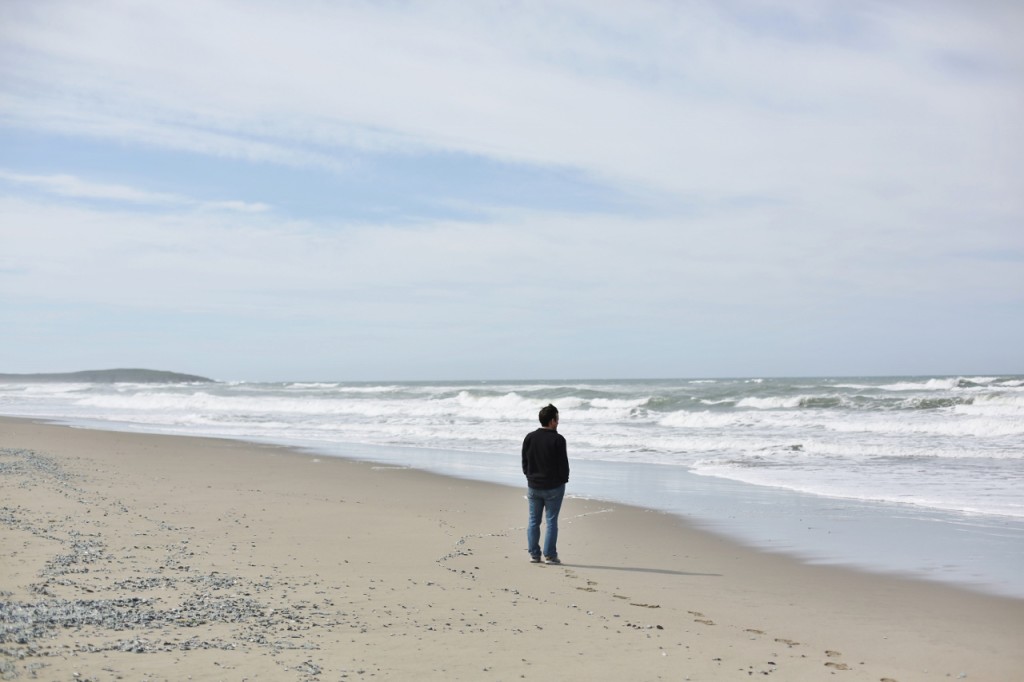

 Follow
Follow
